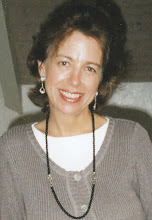
Ayalon: Former Israeli Anti-Terror Chief Turned Peacemaker says Time is Running Out
The man sitting in front of me sipping cold tea wears jeans, sneakers and a short sleeved blue shirt. His head is shaved, his eyes are piercing blue. He looks like so many average Israelis. He isn't. From his tiny office overlooking Tel Aviv, Ami Ayalon carries the hopes of many Israelis seeking a lasting peace with the Palestinians.
Looking at his biography, he doesn't seem to fit the part. A former Chief Commander of the Israeli Navy and head of the notorious Shin Bet (the Internal Intelligence Service which “deals”, in particular, with the Palestinians — imprisonment, interrogation, allegedly torture), Ayalon is indeed anything but a traditional peacenik. But in 2000 the situation took a dramatic turn for the worse with the collapse of peace talks at Camp David, the breaking out of the second Palestinian uprising and the election of hardliner Ariel Sharon as Israeli Prime Minister. “The Israelis feel trapped in a state of war”, says Ayalon. “This is why they elect tough people. Sharon is a warrior.” Ayalon decided to jump into the battle for peace.
He contacted the prominent Palestinian scholar Sari Nusseibeh, head of the Al Quds University in East Jerusalem. His idea was to develop a joint peace initiative that would be pushed up by the force of the people to the respective leaderships on both sides, then pushed up further to the international community. "We've had so many resolutions and plans and processes in the past," says Ayalon. "All of them have been conceived behind the clouds and parachuted down on the people, who are somehow expected to react positively. We are working the other way round.”
Together, Ayalon and Nusseibeh drew up a list of principles dealing with the five key aspects of the conflict: borders, Jerusalem, refugees, security and settlements. They made clear proposals: Israeli withdrawal from all the territories occupied in 1967; establishment of a non militarized Palestinian state in Gaza and the West Bank; Jerusalem as an open city and joint capital for Israel and Palestine; Palestinian refugees could only return to the new Palestinian State, not to Israel.
“People need to know where they are going” says Ayalon. The American “Road Map”, like the Oslo agreements, purports to take the people on a trip to an unknown destination, which will be decided at some point through negotiations to come. This doesn't work. People are ready to make compromises, but they want to know from the outset how bad it will be. We prefer to call our principles 'Destination Map'”.
Ayalon and Nusseibeh have spent the last two years campaigning on both sides of the Green Line for the endorsement of their “People's Voice”, going literally from door to door, organizing meetings between Israeli and Palestinian supporters, speaking in schools, factories, City Halls, army and police quarters, talking to businessmen and politicians across the board.
The message seems to be getting through: to date the “people's Voice” initiative has been officially endorsed by 254.280 Israelis and 161.000 Palestinians. Never in the history of the Palestinian-Israeli conflict have so many people come forward and signed a shared document. The number of Palestinian signatures is particularly impressive given the circumstances in which Nusseibeh's team has been working.
“It's hard work”, concedes Ayalon. “The Israelis have become cynical and lost their dreams. The word 'peace' has been abused, it has become illegitimate. What we do is publicity for peace.” As for Nusseibeh, he was up against more than disillusion in the Palestinian territories: “In about 30% of the places he has been to, he found rigid resistance to the point where he couldn't actually speak”, says Ayalon. “That's because he waived the right of Palestinian refugees to return to their original homes in Israel. He is one of the only prominent Palestinian who has the courage to tell the truth to his people: namely that the return of the refugees to Israel would mean the disappearance of our country. This is obviously unacceptable to Israelis. The abandonment of the right of return is a prerequisite to peace and to the establishment of a Palestinian state.”
Ayalon's credo is simple: “The Palestinians want an Arab Palestinian state and the Israelis want a predominately Jewish state. Only the two-state solution can satisfy both parties, and it is supported by 70 % of Israelis and Palestinian. A single bi-national state would neither be a safe home for the Jewish people, nor an independent Palestinian state. Violence would prevail, the economy would deteriorate, there would be no foreign investment and it would be a very unstable entity. The one state solution is a long term utopia.”
However, pragmatism could lose against utopia. Because of developments on the ground, particularly the expansion of the settlements in the West Bank, within 10 years from now, it will have become impossible to create a separate Palestinian state. Then there will no peace but only long term chaos and slow disintegration. “Time is running out”, says Ayalon.
He leans back and gazes through the windows. Evening is falling on cloudless Tel Aviv. The skyscrapers shine in the horizontal beams of the sinking sun. In the distance, the Mediterranean Sea. “Isn't this beautiful? I am a Zionist. All I want is to keep this State alive.”
(Written after an interview made in June 2004)


0 Comments:
Post a Comment
<< Home